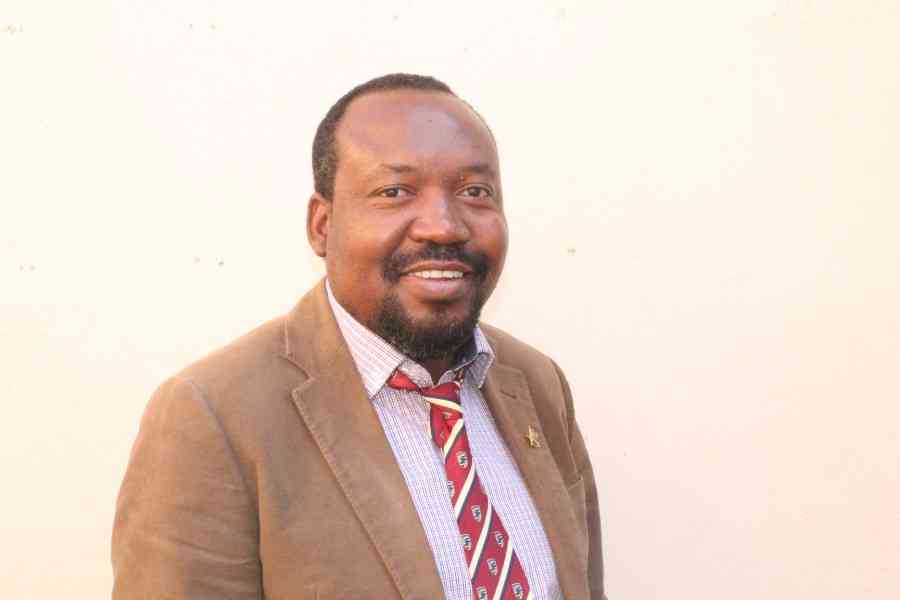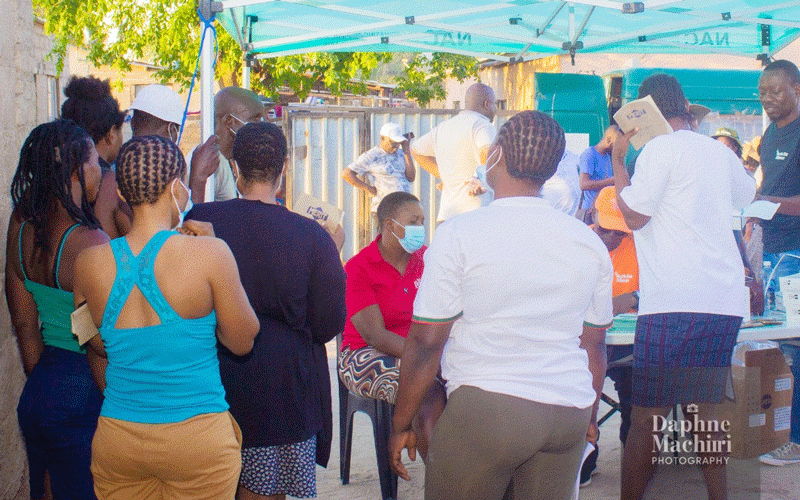
Nkayi South Member of Parliament, Jabulani Hadebe, has paid an emotional tribute to his late colleague Desire “Moyoxide” Moyo , describing him as a dedicated legislator, revolutionary, and lifelong friend whose legacy will continue to inspire generations.
Moyo, who was the MP for Nkulumane, died in a tragic road accident on the Bulawayo-Gweru highway on October 10, leaving the city in shock. His car hit an elephant in Shangani and he died on the spot while four other legislators he was travelling escaped with injuries.
Hadebe said the passing of Moyo was not only a personal loss but a blow to the arts and culture fraternity, which the late MP passionately championed.
“I would like to extend my deepest condolences to the bereaved family, friends, and residents of Nkulumane and Nkayi South constituencies,” he said.
“Honourable Moyo’s untimely death has robbed us of a rare leader whose passion for justice, creativity, and community upliftment was unmatched.”
Hadebe recounted how his friendship with Moyo began in the dusty streets of Nkulumane, where their shared love for the arts laid the foundation for a lifelong bond.
“I was inspired by Desire Moyo when he formed the group Missing Peace after graduating from Hillside Teachers’ College,” he said.
“That group later became Victory Siyanqoba and is now called Community Messengers.
- CCC Nkayi South candidate pushes for Gukurahundi compensation
- Politicisation of Gukurahundi riles MRP
- Garbage killing Nkayi cattle
- Declare drought a national disaster: MP
Keep Reading
“He introduced me to the arts sector and became my mentor in music promotion and events.”
Hadebe revealed that his stage name as an MC, Juluka Bunandi, was actually his childhood nickname — one Moyo helped popularise when he began working as a promoter in the entertainment industry.
“Though he was an artist, he was my mentor in music promotion and arts events,” he said, adding that Moyo’s influence went beyond poetry and performance — it shaped careers and inspired young creatives to find their voices.
In Parliament, Moyo’s advocacy for the arts was relentless.
As a member of the portfolio committee on sports, recreation, arts and culture, he worked closely with Hadebe to push for policies that recognised the creative industry as a cornerstone of Zimbabwe’s identity and economy.
“Honourable Moyo’s contributions to the committee will have a lasting impact,” Hadebe said.
“He believed in supporting artists, not only in death but in life.
“At the funeral of the late Babongile Skhonjwa, he boldly spoke against state-funded funerals for artists, insisting instead on state-funded support for creatives.”
Hadebe said Moyo’s advocacy for a stand-alone Ministry of Arts and Culture was one of their shared goals, born from a desire to see the sector receive the recognition and resources it deserves.
“His work helped shape progressive policies that promote arts and culture, creating an enabling environment for artists to grow,” Hadebe added.
“By championing the rights and dignity of artists, his legacy will empower future generations to pursue careers in the arts, contributing to the country’s cultural and economic development.”
Beyond Parliament, Moyo was known for his poetic activism — using his art to challenge social injustice and inspire youth. His performances were more than entertainment; they were calls to action.
“Desire and I belonged to a young generation of revolutionaries,” Hadebe reflected.
“We shared a vision of fighting for the betterment of our citizens’ lives.
“We believed in the power of our collective voice and action to bring about meaningful change.”
He said Moyo’s creative spirit and passion for community development made him a beacon of hope for many.
“His commitment to empowering youth through education, arts, and culture was unwavering.
“He believed in giving young people the tools to transform their lives and their communities,” Hadebe said.
Hadebe pledged to honour Moyo’s legacy by continuing the work they began together — promoting progressive politics, cultural empowerment, and social justice.
“I will honour his legacy by continually perpetuating his values, work, and vision,” he said.
“As a passionate advocate for arts and culture, I will continue to push for initiatives that promote Zimbabwe’s creative sector. I will also continue to speak out against injustices and work towards creating a more equitable society.”
Hadebe described Moyo as “a revolutionary who lived for the people” — a man whose humility and commitment transcended political lines.
“Desire’s legacy will continue to guide us,” he said.
“He reminded us that leadership is not about power, but service — and that art can be a weapon for justice and transformation.”
As both a poet and politician, Moyo used words to heal, teach, and ignite change.
His influence stretched from the classrooms of Nkayi to the Parliament of Zimbabwe, from township stages to international platforms where his performances spoke for the voiceless.
Hadebe said the greatest tribute Zimbabwe can offer is to continue the work Moyo started — nurturing creativity, promoting social justice, and building communities of hope.
“May Moyo’s legacy inspire us to keep promoting development, unity, and the welfare of our people,” said Hadebe.
The late MP was buried in Bulawayo on Friday and his funeral was attended by hundreds of people.









